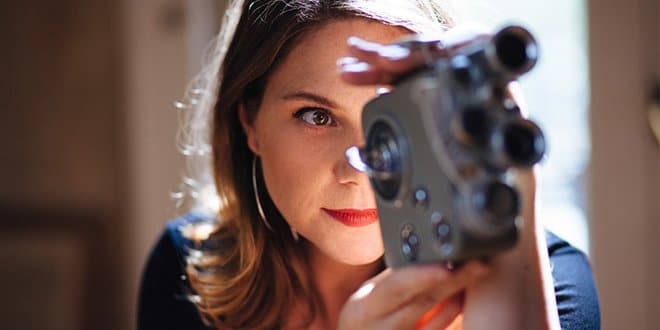We were honored to speak with Erika Lust, the Swedish erotic film director, screenwriter and producer who has been an instrumental force within the feminist porn movement, as well as in her efforts to bring it to the mainstream.
After the success (and international recognition) of her first film The Good Girl (2004) she founded Lust Films in Barcelona. Currently, they produce short adult films based on anonymous confessions that viewers submit on the project’s website, which are then turned into cinematic short films. We asked her for her thoughts on what is wrong with mainstream pornography and why exactly it is so important to create something different.
Volonté: Is there anything wrong with mainstream porn, and if so, what is it?
Erika Lust: I would ask myself: ‘Is there anything positive with mainstream porn, and if so, what is it?’
Mainstream porn is boring, it’s ugly, it’s gynecological, it’s repetitive, [and] it’s saturated with chauvinism. We need alternatives and I think it’s important that we talk about porn openly. Back in the day, I wrote a manifesto and recently I did [a] TedTalk; they both explain my position [regarding] what is wrong with porn.
V: You are considered a feminist pornographer; what does that mean and how does it differ from mainstream pornography?
EL: Personally, I prefer to refer to my films simply as Independent Adult Cinema, and myself as an erotic film director. Then I don’t need 15 minutes to explain what I do for a living.
You see, ‘feminist porn’ is a difficult concept that is easily misunderstood. Way too many people think it’s porn with angry women who oppress and humiliate men, or that it’s only lesbian porn, or made for women only, or that’s it meant to be any type of ‘better’ porn. None of this is true. Feminist porn [isn’t a] homogeneous group of filmmakers. Some films are good and others less good, but whatever the definition, they are needed as a counterweight and alternative to mainstream porn today, the kind that in most cases is impregnated by chauvinism. Women need time and space to try and experiment and find their voice in the genre.
I cannot tell how feminist porn differs from mainstream porn, [but] I can talk about how my films are different from cheap and ugly porn. They are different because they are free from porn clichés, because me and my team do not hide, because we have ethics that we respect, because we pay good fees to the performers, we shot cinema and not silly sex on a cheap sofa.
V: What is the difference between being sexually empowered and objectified?
EL: It’s a thin line, like many things in our world. You have to look at each different situation: who has the power in any given situation, the values, and look at the question of consent. And not just consent, but enthusiasm as well!
For me it’s important that the performers, both men and women, feel empowered by starring in my films.
That’s part of my responsibility as a director― to make sure the performers feel empowered. It’s important to portray active consent in my films as well, portraying people as sexual but as human beings as well with their own ideas and feelings.
And finally, I think some people can take some pleasure out of being objectified…and that’s ok! I don’t think it’s wrong to feel that way at all! I think it’s possible to be a subject of pleasure while being an object of desire. It’s all about how the person doing it feels and that they are consenting to that act.
V: How does consuming and creating erotic content help women take ownership of their sexuality?
EL: It’s important that women have their pleasure taken seriously, but also that they can see sexuality portrayed as a fun thing, as a positive thing, as a healthy thing, [something] that’s an amazing part of the human experience. We get so used to images of sex only as a vulgar, oppressive, traumatic or violent thing. We need to see the happy side of sex too!
Women have always been told what to do with their bodies and with whom. Creating and consuming the kind of erotic content that we want to see ourselves can help in taking ownership of own sexuality, absolutely. And we have to create spaces where we are creators, not just visitors and guest stars. Women have to get to talk about their ideas and thoughts about sex too… it’s about time.
Conclusion
The way that we consume, talk about, even interact with erotic material is rapidly changing, and it’s the work of people like Erika Lust that helps bring about positive change. If you’d like to learn more about her or her work, you can check out her (NSFW) website.

